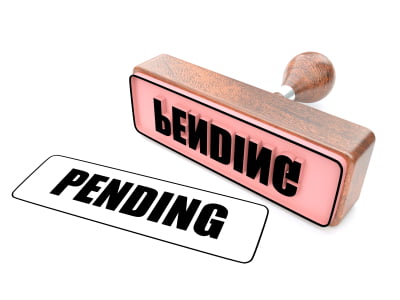This article analyzes the modification of escrow instructions and how disputes over funds in escrow are handled when escrow fails to close. For more information about the purpose of an escrow, see Escrow, the time for performance. This article is part of our Fundamentals of Real Estate Practice series.
Modifying escrow instructions
Most modern real estate sales transactions depend on both the purchase agreement and the escrow instructions working in tandem to close a transaction.
If a point in dispute is not addressed in the underlying purchase agreement or controlled by local real estate custom, then it is not part of the contract. Any such contested item must be added to the escrow instructions by amendment, if agreeable to both the seller and buyer. These amended instructions supersede the prior contract and bind the buyer and seller to the terms agreed to in the instructions. [U.S. Hertz, Inc. v. Niobrara Farms (1974) 41 CA3d 68]
Naturally, amended instructions adding terms which are modifications of the purchase agreement prudently state that they modify the purchase agreement.
Escrow instructions which modify the intentions stated or implied in the purchase agreement must be written, signed and returned to escrow by the buyer and seller. Proposed modifications signed by some but not all parties are not binding on a party who has not agreed to the modifications. [Louisan v. Vohanan (1981) 117 CA3d 258]
Before closing escrow, an agent may discover an aspect of the escrow instructions which conflict with the intentions expressed in the purchase agreement or the expectations of the buyer or seller. The agent is duty-bound to immediately bring these discrepancies to the attention of the escrow officer and his client. [Claussen v. First American Title Guaranty Co. (1986) 186 CA3d 429]
On notification of an error in the instructions or a need for clarification, the escrow officer must hold up the close of escrow until the discrepancy is clarified and corrected escrow instructions have been prepared, signed by the buyer and seller, and returned to escrow. [Diaz v. United California Bank (1977) 71 CA3d 161]
Changes in the escrow instructions and purchase agreement should be prepared by escrow as amended escrow instructions for the buyer and seller to sign. Neither person may individually modify the terms of the escrow instructions without the knowledge and consent of the other person. [Smith v. Brown (1934) 1 CA2d 492]
The amended instructions should reference the purchase agreement as being modified. Once the buyer and seller agree on the terms, the escrow can proceed toward closing.
The purchase agreement and escrow instructions work together to ensure that the original expectations of the buyer and seller at the time of contracting are met when the transaction closes. The careful agent reviews the provisions of both documents to ensure no conflicts exist, and that the intentions of the parties will be fully performed by all concerned. [See first tuesday Form 150 and 401]
Required escrow disclosures
All written escrow instructions signed by a buyer or seller must contain a statement, in not less than 10-point type, which includes the licensee’s name and the name of the state department issuing the license or granting the authority under which the person conducting the escrow is operating. [CC §1057.7; see first tuesday Form 401]
In addition, all escrow transactions for the purchase of real estate where a policy of title insurance will not be issued to the buyer must include an advisory notice prepared in a separate document and signed by the buyer. The notice must state:
“IMPORTANT: IN A PURCHASE OR EXCHANGE OF REAL PROPERTY, IT MAY BE ADVISABLE TO OBTAIN TITLE INSURANCE IN CONNECTION WITH THE CLOSE OF ESCROW SINCE THERE MAY BE PRIOR RECORDED LIENS AND ENCUMBRANCES WHICH AFFECT YOUR INTEREST IN THE PROPERTY BEING ACQUIRED. A NEW POLICY OF TITLE INSURANCE SHOULD BE OBTAINED IN ORDER TO ENSURE YOUR INTEREST IN THE PROPERTY THAT YOU ARE ACQUIRING.” [CC §1057.6; see first tuesday Form 401-1]
Finally, escrow has a duty to advise the buyer in writing of the Franchise Tax Board (FTB) requirements for withholding 3 1/3% of the price paid the seller, unless the seller certifies he is exempt from state income tax withholding. [Calif. Revenue and Taxation Code §18662(e)(3)(B)]
Prorations
On the close of escrow, buyers and sellers receive a credit or a charge for their proportionate share of income or expenses, called prorations.
Prorations are usually divided based on the date escrow closes, but can be any date agreed on by the buyer and seller. The entire day of closing is the first day of the buyer’s ownership, unless the escrow instructions specify otherwise.
Items which the buyer takes over and are prorated include:
- property taxes;
- interest on loans/bonds assumed;
- rent; and
- service contracts assumed by the buyer.
Prorations are initially agreed to in the purchase agreement. Proration provisions entitle the seller to a credit for the portion of prepaid sums which have not accrued on the day of closing on items the buyer takes over or receives on the sale. Conversely, the buyer receives a credit for unpaid amounts assumed by the buyer which accrued through the day prior to the close of escrow. [See first tuesday Form 150 §12.6]
Property taxes are levied for the fiscal year of July 1st to June 30th of the following calendar year. To prorate property taxes, the beginning of the fiscal year is the starting point for accrual. Prorations are based on a 30-day month or a 360-day year.
Property taxes are paid in one or two installments. The first installment is payable no later than December 10th for the first half of the fiscal year. The second payment is due no later than April 10th for the second half of the fiscal year.
A buyer might also assume an existing fire insurance policy. When the seller prepays an insurance premium on a policy assigned to the buyer, the seller receives a credit and the buyer is charged for the amount of the premium for the period beginning with the date escrow closes. [Greco v. Oregon Mutual Fire Insurance Company (1961) 191 CA2d 674]
For interest on loans, improvement bonds or other debts assumed by the buyer, the seller is charged and the buyer receives a credit for the interest accrued and unpaid during the seller’s ownership of the property through the day before the close of escrow.
On the purchase of income property, the buyer is entitled to a credit for the prepaid rents collected by the seller which have not accrued for the remaining days of the month beginning with the day of the close of escrow.
All security deposits held by the seller are credited to the buyer as a lump sum adjustment, not a proration, since, after closing, the buyer is responsible to account to the tenants for the deposits on termination of their tenancies. [See first tuesday Form 554]
The seller is credited for any delinquent unpaid rents which have accrued prior to closing and are to be collected by the buyer.
Estimating loan balances
The seller’s broker preparing a seller’s net sheet for his client initially makes a good faith estimate of the existing loan balance. When the buyer assumes the loan, the estimate of the loan balance will also be entered by the buyer’s agent when preparing the buyer’s cost sheet, the purchase agreement and escrow instructions for the transaction. [See first tuesday Form 310 and 311]
The broker must explain to his client (or others he may be assisting) that the down payment, carryback note or purchase price (as agreed to in the purchase agreement adjustment provisions) will vary to the extent the loan balance estimates vary from the actual loan balance at the time of closing.
The close of escrow can be jeopardized by surprises if the adjustments are not understood by the buyer and seller up front.
Disputed funds held in escrow
A buyer’s good faith deposit toward the payment of the purchase price of a one-to-four unit residential property must be returned within 30 days after the person entitled to the funds demands them. When escrow fails to close, the issue becomes who has the right to receive any funds deposited in escrow by the buyer. [CC §1057.3]
A seller or buyer who wrongfully refuses to release the buyer’s good faith escrow deposit is liable for a money penalty of three times the amount wrongfully withheld, called treble damages. Treble damages must be greater than $100 but less than $1,000, plus attorney’s fees (which can run into the tens of thousands). [CC §1057.3]
Even when a forfeiture-of-deposit provision is included in a purchase agreement and initialed by all, the seller is not entitled to any of the buyer’s funds unless he has suffered out-of-pocket money losses due to the buyer’s breach of the purchase agreement or escrow instructions. Thus, the seller must release the escrowed deposit to the breaching buyer, less any out-of-pocket money losses the seller actually incurred due to the buyer’s breach.
Unless escrow receives mutual instructions to disburse the funds held in escrow when escrow fails to close, the escrow company will deposit the funds with the court, relieving itself of any further responsibility to account for the funds, called an interpleader. Thus, escrow can close out its trust account on this escrow file. [CCP §386; Security Trust & Savings Bank v. Carlsen (1928) 205 C 309]
Good faith dispute over deposits
Release of the funds is not required if a legitimate good faith dispute exists between the buyer and the seller over entitlement to the funds. [CC §1057.3(f)(2)]
Neither the buyer nor seller will be entitled to any penalty or statutory attorney’s fees on resolution of a good faith dispute. The good faith standard for an individual’s refusal to release escrowed funds requires a reasonable belief by the individual of his right to the funds. [CC §1057.3(c)]



















Reinelda,
Thank you for your question. We offer a course in Escrows (which can additionally be applied towards becoming a broker), and you can find that course information as well as our other course offerings here.
first tuesday also offers Forms on CD, an agent’s professional toolbox, which includes all 14 books published by first tuesday, and is included with any course enrollment.
Regards,
ft Editorial Staff
for new agents, is there a class that we can take to become more knowledgeable?